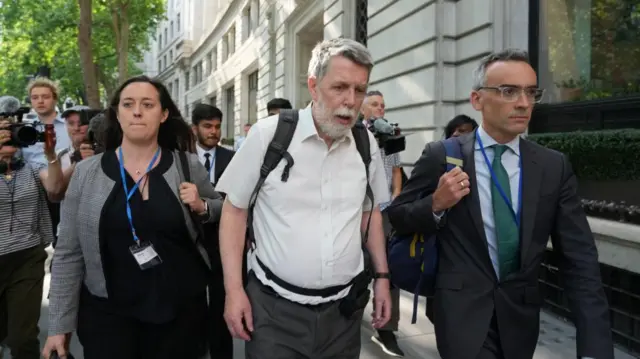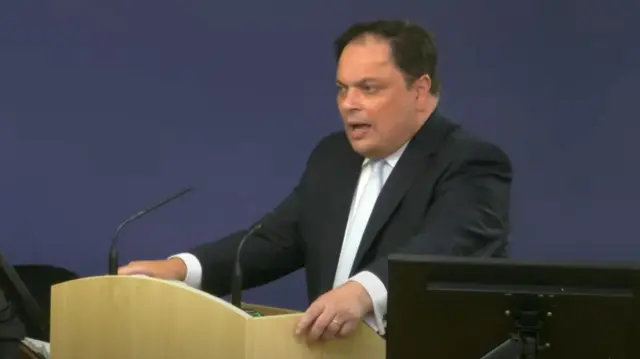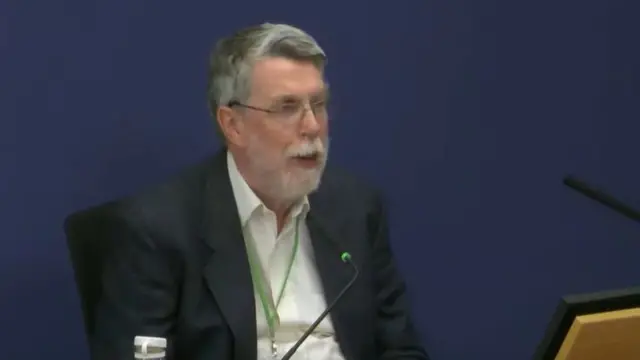The witness statement ‘haggle’published at 16:28 BST 26 June 2024
 Zoe Conway
Zoe Conway
Employment correspondent, reporting from the inquiry
The stakes couldn’t have been higher. It was 2006 and sub-postmaster Noel Thomas’s case was coming up in a Crown Court. His legal team argued the Horizon computer system was to blame for the shortfall in his branch accounts.
Gareth Jenkins was asked to give his expert opinion to the court. In a witness statement he said that "system failure" could be to blame.
But the statement was re-written twice at the request of Graham Ward, an investigator at the Post Office. He said the phrase "system failure" had go as it suggested problems with the Horizon computer system were normal, could cause the Post Office embarrassment in court, and could support the sub-postmaster’s claim that the system was to blame for the losses.
Today at the inquiry Gareth Jenkins was asked whether he thought it was appropriate that his language was "haggled over".
He said that at the time he thought it was appropriate because the Post Office wanted to use less emotive language.
Noel Thomas was convicted of false accounting. He was sentenced to nine months in prison.







